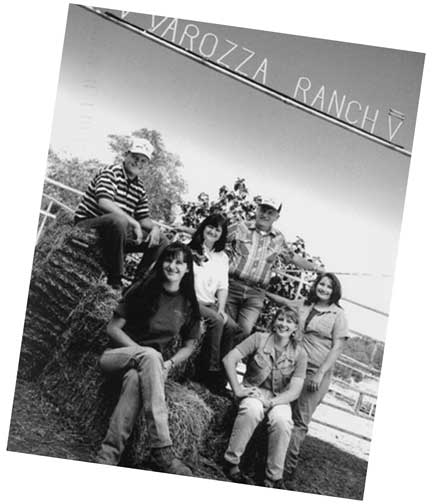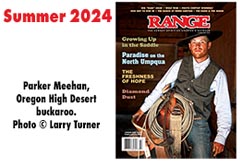|

I am currently taking a "Human's Impact on the Environment" class at the University of Nevada, Reno. I expected some strong views. I am the only ranch student in the class and it shows. Every time I raise my hand, most of the students roll their eyes and seem to be saying, "Here we go."
I am very passionate about agriculture and getting the facts straight. I debate almost daily with the professor over hormone percentages in beef, beef as a healthy food source, grazing rights, oil drilling, logging issues, and private property rights. As the only student in my class who knows about agriculture, I try to make sure the other students get brainwashed as little as possible. The problem is: teachers are there to teach, so everything they’re teaching must be right, right? Wrong.
I don't mean to be rude or disrespectful, and not all of the professors fall into this category, but a lot of times teachers digress from the daily curriculum and start preaching issues they know little about. Watching the news or reading a newspaper doesn't make you an expert. So, when my science teacher started in about federal lands being overgrazed and depleting soils, I just couldn't resist. Excuse me, but I come from the cattle ranching industry and am well aware of grazing benefits to federal and private ground and you’re lecturing me on the effects of cattle grazing on rangeland, when your primary field of expertise is Mercury?
One day my professor asked who knew what a feedlot was. I was appalled that my hand was the only one raised. Imagine, the bulk of students' steaks, hamburgers, and McDonald's beef seasoning in fries are finished at a feedlot and they don't even know what it is.
I explain what a feedlot is, only to have my professor go into how she is a vegetarian and feels sympathetic because the "cows have no real quality of life in a feedlot." I calmly explain that that is the purpose of a feedlot. Livestock are fed to a certain weight, in big numbers, to feed a lot of people. It's a business, a science, and eating the beef is the predicted result. If you've ever been around cattle, their happiness isn't judged by their intellectual stimulation. It's judged by food and I’m thinking a feedlot has to be the closest thing to heaven for them.
I don't understand the drive of the environmentalist views. They're not for development and they're not for agriculture. So what exactly are they for? Don't they see how much ranchers have improved ground by drilling for water and supporting areas that would normally be completely dry other than for yearly rainfall? Or that by allowing cattle and sheep to graze, deer and other wild ruminants that prefer the smaller roughages can come in and benefit? What about supporting biodiversity and keeping growth down to prevent uncontrollable fires? It is in every rancher's and farmer's best interest to take care of the ground that sustains them. If they don't, they're out of business.
The issue of hormones in beef has been a concern for quite some time and was brought up by my teacher in our beef discussion. Harlan D. Ritchie, a distinguished professor of animal science at Michigan State University points out that a 3-ounce serving of beef from a non-implanted steer contains 1.3 nanograms of estrogen. (A nanogram equals one billionth of a gram.) A 3-ounce serving of beef from an implanted steer contains 1.9 nanograms of estrogen, an extremely low level. In comparison, a 3-ounce serving of soybean oil contains 170,000 nanograms of estrogen. These are the kinds of numbers that are typically manipulated by animal rights activists in hopes to scare consumers. But when this was brought up in class, my teacher said: "Oh, yeah, I know they manipulate that stuff."
Well, then, why not tell students that side too? Had I not said something in ranchers' defense, it never would have been brought up.
I have become well acquainted with the phrase, "I don't want to impose my political or environmental views on you students, but, I really think..." What is that? Are they there to teach me about English, math, and science or about how their beliefs and feelings somehow tie in with my education? I am at school to get an education from qualified professors in specific fields of study, not to hear about their voting record.
Why can't teachers provide information from both sides? It isn't as though teachers don't have the resources; there is a College of Agriculture, Biotechnology & Natural Resources right on my campus. As a college student, I have learned that in order to fight for or defend an issue, I must know my opponent's argument as well as my own. It is in everyone's best interest to know both sides of an issue in order to be able to fix it, debate it, or leave it alone. So, please teach us all of it. |
 Photo courtest Channel 10 News
Photo courtest Channel 10 News
Jacquelyn at the Varozza Ranch in Latrobe, Calif.
Clockwise from top left: Joe, Jeannie, Wayne, Gwen, Karen,
and Jacquelyn, with Sophie the dog.
|
Summer 2005 Contents
|
|



